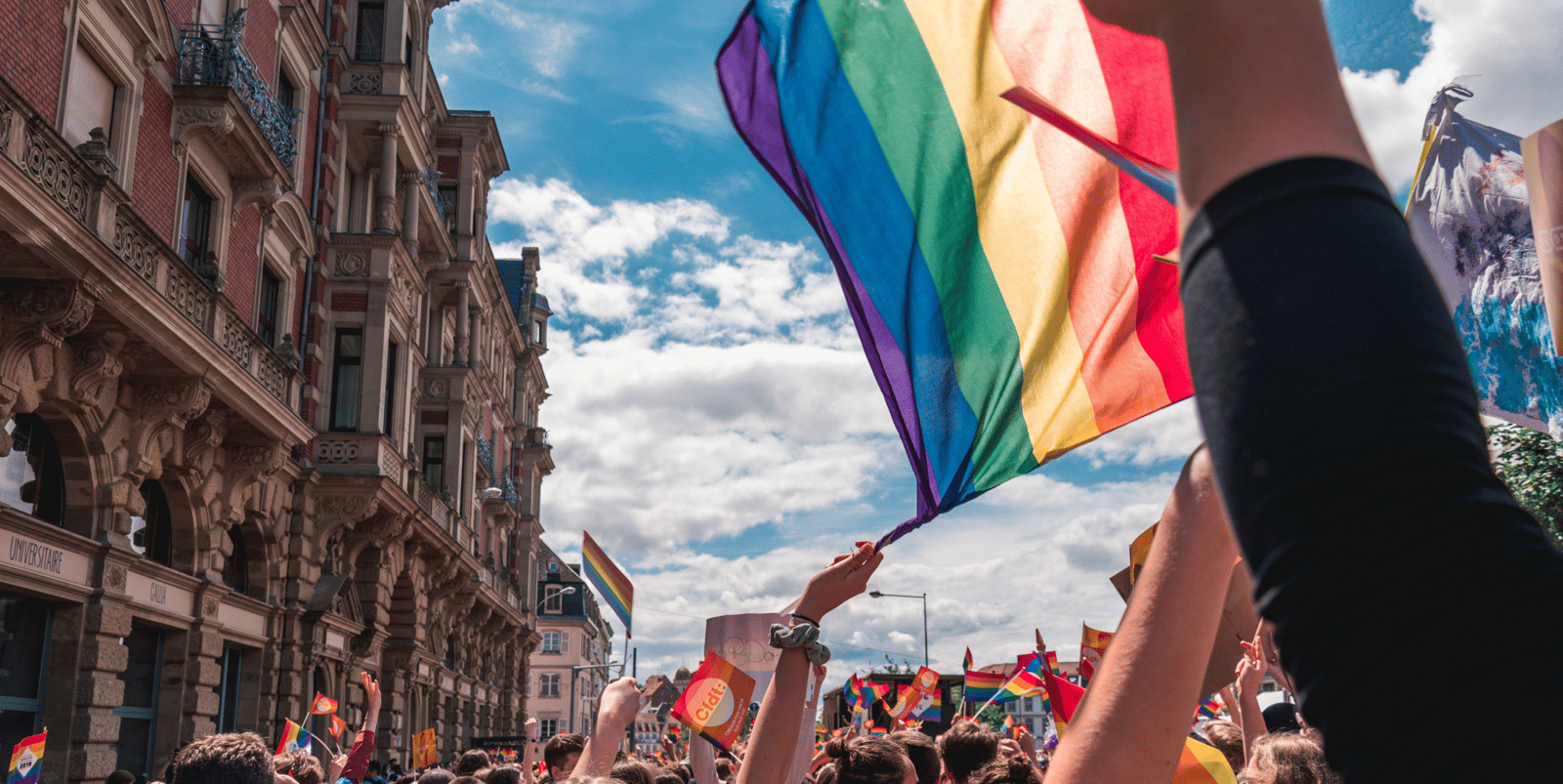How Pride can help promote Diversity and Inclusion
Mental healthArticleJune 20, 2024
When embraced by the society we live in, we develop a deep sense of belonging and happiness. We feel safe, welcome, and valued by the people around us. This helps us feel joy. It allows us to build connections without worrying about judgement.
Pride plays an important role in emotional wellness, whether we are part of the LGBTQ+ community or an ally. Embracing our identity and knowing we are accepted for who we are empowers us. It lets us have a positive impact on society.
The benefits of embracing diversity
Diversity enables us to progress as a society. It helps us overcome obstacles and adapt to new situations. Diversity provides us with new ideas and opportunities to learn. Ultimately it allows us to grow as individuals and as a community.
When we embrace diversity, some level of friction is inevitable. With so many ideas and viewpoints coming together, disagreements are likely to arise. But, if we listen to each other and give space to live freely and proudly, we can build a healthy society together.
Listening to LGBTQ+ voices
The first step to resolving conflict and promoting diversity is to listen to each other. By listening to LGBTQ+ stories and amplifying their voices, we help promote understanding and connection between people of all backgrounds.
A 2022 survey by The Trevor Project found that 71% of transgender and nonbinary youth say they have faced gender identity discrimination. The Trevor Project is a US non-profit working to prevent LGBTQ+ youth suicide. This is a significant group of people who haven't been respected or validated by others. Listening to others can help. It can promote an open and inclusive environment. It creates a society where people feel heard. Their thoughts, feelings, and identities are valued.
What can you do as an ally?
- Educate yourself on LGBTQ+ identities, language, and pronouns – Focus on the basics, learn as you go, and don’t be afraid to ask questions if unsure. Just remember to be respectful.
- Listen and amplify voices – When someone tells you who they are and how they feel, listen. They know and understand themselves better than you do.
- Create, promote, and protect inclusive spaces – Be open in your allyship. Let those around you know the spaces you inhabit are safe and that LGBTQ+ people are welcome in your presence.
- Embrace LGBTQ+ people socially – Make friends, be open and show love to all.
Resources for LGBTQ+ people struggling with mental health
- Connect with members of the community – Being around other members of the LGBTQ+ community can help validate your experiences and combat feelings of isolation.
- Use free hotlines for counseling and support – Talking about your sexuality or gender identity can feel daunting. Free confidential hotlines are a great way to openly express how you’re feeling.
- Find role models to inspire and empower you – People all over the world have amazing stories to tell about their experiences. Find ways to listen to their stories and learn from them.
For more helpful resources, visit Head in the Game, a Beyond Sport program powered by the Zurich Foundation.
Find a range of mental health resources in the LiveWell app, download here or by scanning the QR code below.

Sources
- The Trevor Project, (2023), 2022 National Survey on LGBTQ Youth Mental Health. Available at link.
- Head in the Game, (2024), Resources Specifically for LGBTQ+ Teen Mental Health. Available at link.
- Head in the Game, (2024), What Transgender Individuals Want You To Know – And How You Can Be a Better Ally. Available at link.
- World Economic Forum, (2021), 3 ways to protect LGBTI rights across the world. Available at link.
- Human Rights Watch, (2023), LGBT Rights [Online]. Available at link.
- Amnesty International, (2022), WHY ARE LGBTI RIGHTS IMPORTANT? Available at link.
- International Labour Organization, (2015), LGBT workers entitled to equal rights and benefits at the workplace. Available at link.
- Bedrick, D., (2017). Embracing Diversity in Relationships. Available at link.
- al., D. G. S. e., (2000). The Benefits of Diversity: What the Research Tells Us. Available at link.
- Ph.D., J. S., (2017). How Much Diversity Can We Handle?Available at link.
- Miguel R Ramos, e. a., (2019). Social diversity is initially threatening but people do adapt over time – new research. Available at link


